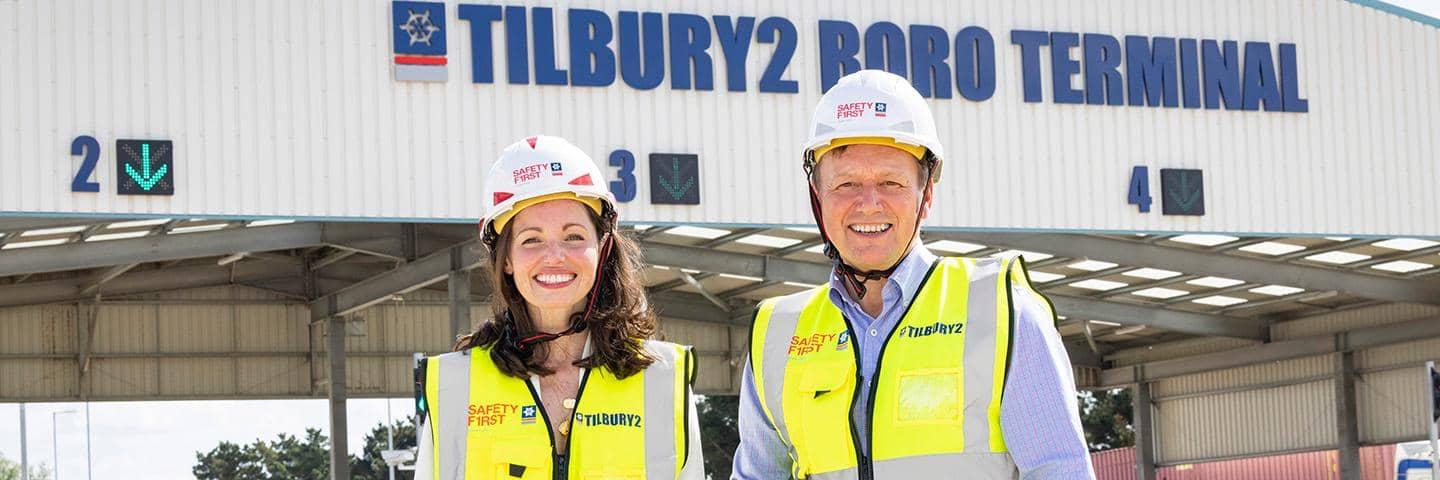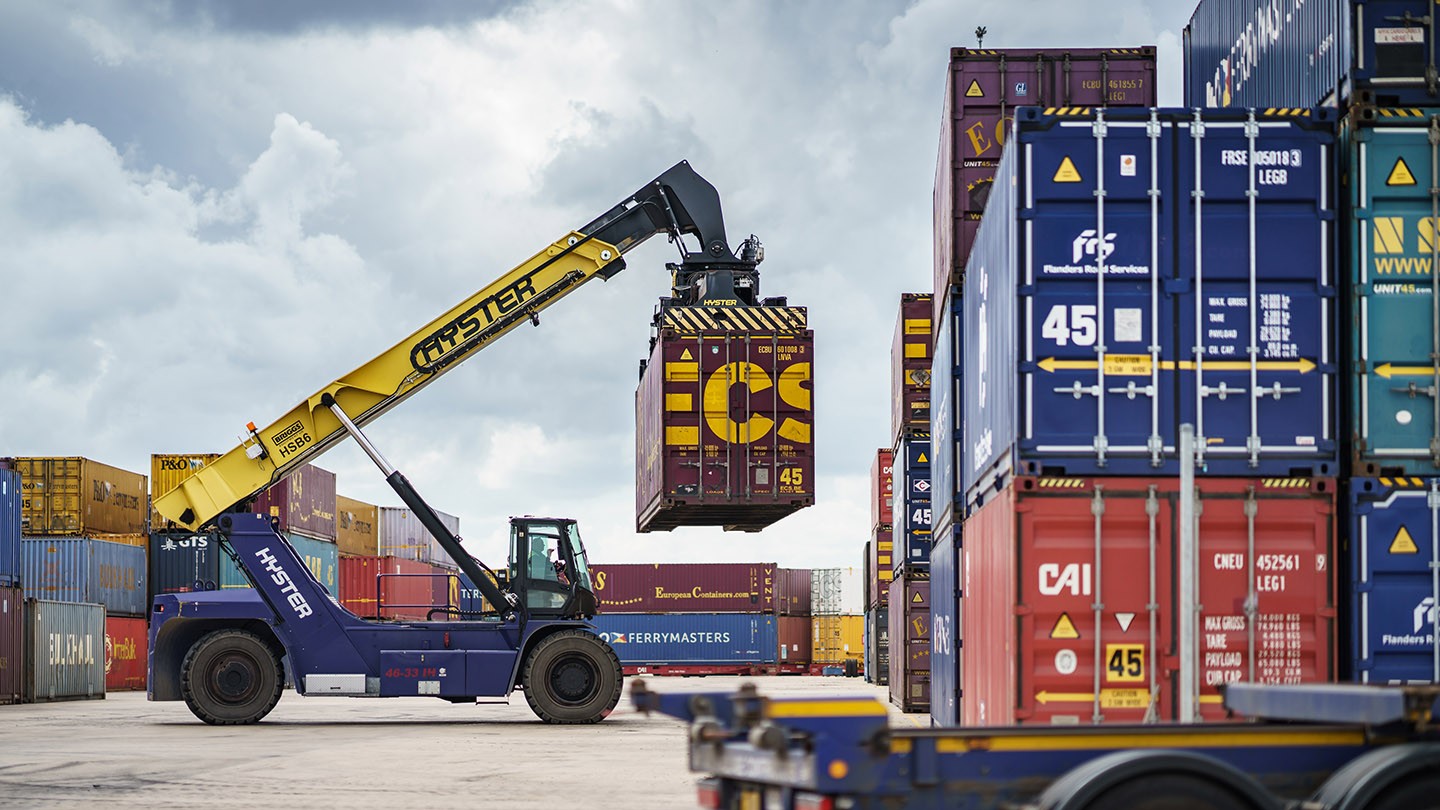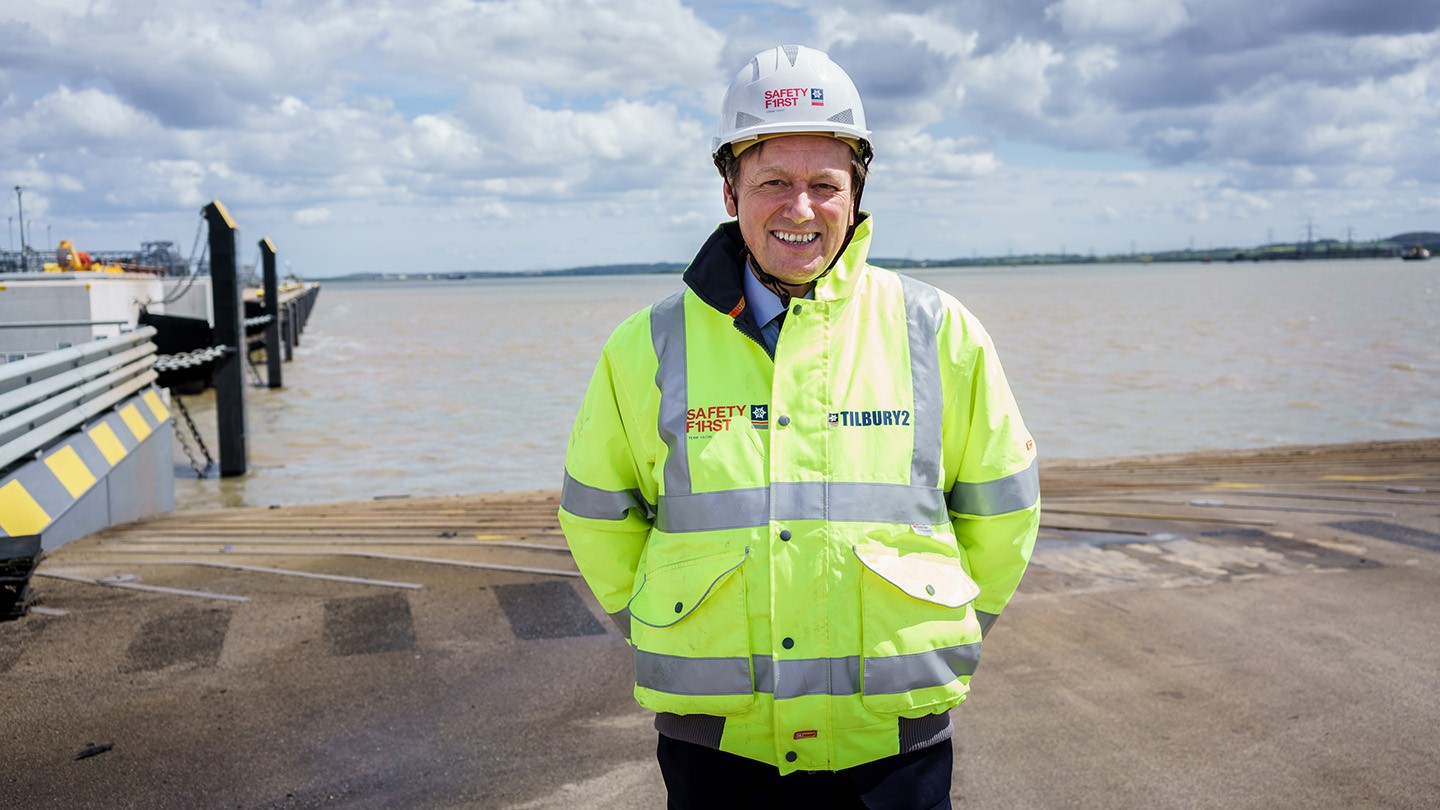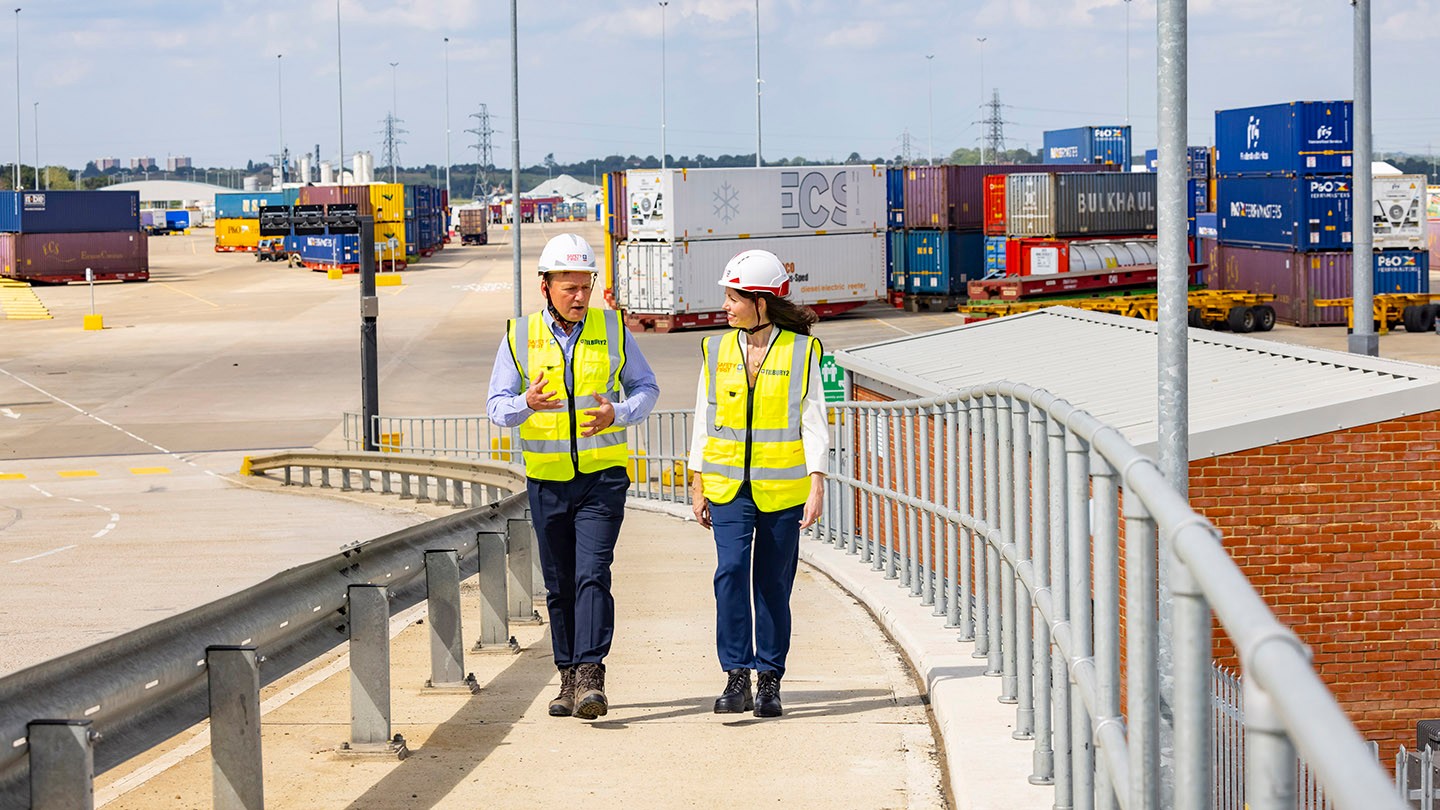
Growth
Helping to finance a “gateway to the world”
04 October 2021
Barclays Corporate and Investment Bank helped long-standing client Forth Ports to finance the expansion of a key maritime port in the UK. Hear how this new large-scale infrastructure project in Tilbury has boosted the UK’s importing and exporting capacity – and supported the creation of thousands of jobs.
Every year, the Port of Tilbury in Essex handles 16 million tonnes of the commodities that are essential to everyday life. From lumber to coffee – these are used to make anything from the newspaper you pick up in the morning, to the drink you have while you read it.
The largest port on the River Thames, spread across 1,100 acres, the site is also a crucial part of the supply chains for businesses across a range of sectors. This includes transporting grain that ends up in products on supermarket shelves, importing cars for the automotive industry, and handling millions of tonnes of recycling.

Sally Rushton is Head of Infrastructure Banking, Europe and Middle East at Barclays.
Ports are gateways to the world, and being able to support a company such as Forth Ports, with its ambitious import and export activities, further supports and boosts the UK economy.
Head of Infrastructure Banking, Europe and Middle East at Barclays
“We oil the wheels of trade,” explains Charles Hammond, CEO of Forth Ports, one of the UK’s largest port groups and operator of the Port of Tilbury. “Quite simply, we keep the economy moving by handling and distributing all kinds of goods which are necessary for modern day living.”
The Edinburgh-based group runs six ports in the Firth of Forth, as well as the Scottish port of Dundee – but Tilbury is its largest holding. Having operated for more than 130 years, the site is a vital part of the UK economy, helping facilitate domestic and international trade. But it also plays a crucial role in the local community, supporting more than 8,600 full-time equivalent jobs – with most of its key managers based within 10 miles of the hub. And its impact is likely to increase as a result of the expansion that Tilbury2 represents.
“Projects like this don’t happen overnight”
Built on the 152-acre site of the former Tilbury Power Station, Tilbury2 has a new ‘roll on/roll off’ terminal – meaning it can accommodate cargo like trailers and containers. The project has created the country’s biggest construction processing hub, as well as offering additional rail and road connections. In fact, according to its 2020/2021 handbook, the Port of Tilbury is now projected to double the amount of cargo it handles over the next 10 to 15 years, and has almost met targets to increase direct employment from 3,500 to 12,000.
To achieve such significant growth, careful planning and dedicated funding was needed. “Projects like this don’t happen overnight,” says Hammond. “They require patience, they require planning, and they require perseverance.”
As Forth Ports’ long-standing banking partner, Barclays Corporate and Investment Bank was well placed to help the team access the capital needed to realise the ambitious expansion.

The port is a crucial part of supply chains for businesses across many different sectors.
“Historically, Forth Ports had always secured its financing from its relationship banks,” explains Sally Rushton, Head of Infrastructure Banking, Europe and Middle East at Barclays. “But in 2013 we worked with Forth Ports to put in place a stable capital structure that gave them access to a wider pool of investors that they could borrow from. They’ve done that on a repeated basis since – and Tilbury2 is an example of that.”
Barclays Corporate and Investment Bank secured funding through the global capital markets, which consist of potential investors around the world. Through these international opportunities, the bank attracted significant demand from investors, and secured Forth Port’s third private placement – a private sale to investors and institutions, rather than via a public offering.
In order to secure that long-term funding, the bank had to make sure “the business message, the desire to raise funds and the overall business strategy were put across clearly to investors,” Hammond says, citing the expertise and networks available through Barclays. “It is good to have somebody by your side who actually understands your business and has a good relationship with investors.”
To have Barclays as a business partner gives us the advantage of going back to the market when we have fresh ideas of expansion and driving our business strategy forward.
CEO, Forth Ports

Charles Hammond, CEO of Forth Ports – operator of the Port of Tilbury.
The transaction drew noteworthy investor demand. Now, infrastructure projects like Tilbury2 will be ever more important as UK businesses look to harness growth opportunities after the pandemic.
“As a UK institution,” Rushton says, “recognising our home market and being able to facilitate growth for companies such as Forth Ports is absolutely vital to Barclays.”
“Somebody by your side”
Having secured funding, work on the project continued throughout the pandemic and Tilbury2 was able to open in May 2020.
Hammond says the flexibility and resources offered by a globally connected bank like Barclays provide clear benefits in terms of growth: “To have Barclays as a business partner gives us the advantage of going back to the market when we have fresh ideas for expansion and driving our business strategy forward. It’s very comforting to know that we have a good old fashioned banking relationship at the back of our business.”

Hammond says that Barclays helped make sure that Forth Port’s business strategy and message were communicated clearly to potential investors.
For Rushton, it’s been hugely rewarding to see the plans for Tilbury2 become a reality – supporting not only a client, but also local communities and economies. “Ports are gateways to the world,” she says, “and being able to support a company such as Forth Ports, with its ambitious import and export activities, further supports and boosts the UK economy.
“Working with Charles and his team over the years has been an absolute joy. When you come to the port, you can really feel the energy and the ambitions – but also the love they have for their job and the business that surrounds them.”